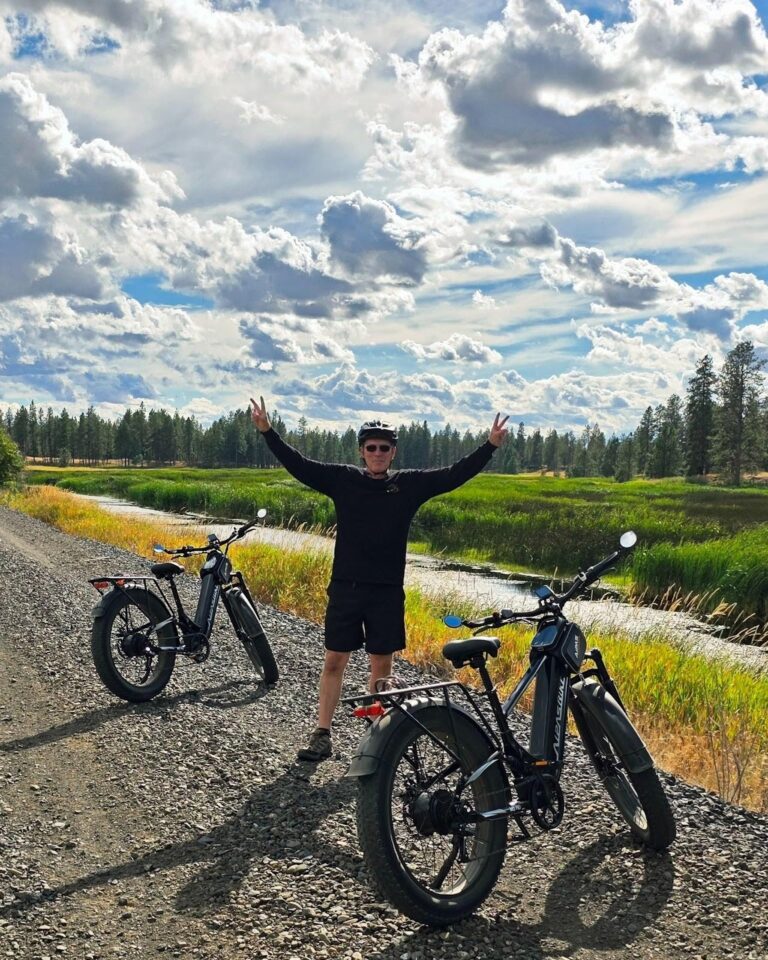Surveillance in Rentals: Security Tool or Privacy Nightmare?
You’ve just moved into your new place. Unpacked your boxes, rearranged the couch four times, and finally found the right angle for your terrible-but-charming thrift store lamp.
Then you look up.
And there it is. A tiny camera mounted in the corner like it’s auditioning for a spy movie.
You didn’t put it there. So… who did?
Welcome to the weird, blurry intersection of rental surveillance and tenant privacy.
Now, let’s get this out of the way early: security isn’t a bad thing. Most of us like knowing our home won’t be an easy target for porch pirates or the odd break-in. In fact, according to Statista, 43% of Americans own a smart home product, and that number is growing.
The Joseph Group property management team says they’ve seen a growing number of tenants specifically ask about smart security features during showings, especially things like doorbell cameras and smart locks that add convenience without crossing privacy lines.
But when it’s not your home (technically), and someone else installed the cameras, the whole situation gets murky. Quickly.
“It’s Just for Safety,” They Say…
Maybe your landlord installed exterior cameras “for your protection.” That sounds noble, right? Except when those cameras start facing your front door, your parking spot, or worse, your windows, it doesn’t just feel protective. It feels… invasive.
Because here’s the deal: when you rent a space, it’s supposed to feel like yours. Even if your name’s not on the deed. Even if the paint is that weird shade of beige that landlords love. You still expect a certain level of privacy.
So, What’s Actually Legal?
Laws vary by state and country, but as Priority One Real Estate states, landlords can install security cameras in common areas, such as entryways, hallways, or driveways. But indoor surveillance? That’s usually a hard no.
Recording someone inside their home without consent can be illegal. Like, lawsuit-level illegal.
And if you’re dealing with a short-term rental (hello, Airbnb), some hosts have been caught installing hidden cameras in bedrooms and bathrooms. That’s not just unethical. That’s a straight-up horror story.
Some states, like California and New York, are pretty strict about tenant privacy laws. But others? Let’s just say it’s worth checking. If you’re not sure where your state falls on the rental surveillance spectrum, a quick call to a property manager (ideally one who knows the law and isn’t weird about cameras) might be your best bet.
“But What If It Makes Me Feel Safer?”
Fair question. It’s one of the most common reasons landlords or property managers say they’ve added cameras, safety, peace of mind, crime deterrent. And sure, there’s data to back it up. A UNC Department of Criminal Justice study found that 50% of burglars would avoid homes with visible security systems.
That’s great. But what about your peace of mind?
Because here’s the contradiction: a camera that’s meant to make you feel safe might do the opposite if it feels like someone’s watching your every move. It’s a bit like having a lock on your diary… then giving someone the key “just in case.”
And here’s where property managers come back into the picture. The good ones? They’ll strike a balance. They’ll work with owners to ensure security systems are above board, legally compliant, and, most importantly, respectful of your space. You know, like humans live there.
Let’s Talk Consent
Here’s something a lot of people miss: it’s not just about the camera. It’s about transparency.
If a rental has cameras, you should know about them before you sign anything. Disclosure isn’t just polite. It’s often required. And you deserve the opportunity to say, “Cool, I’m fine with that,” or “Nope, not for me.”
If you’re already renting and suddenly notice a camera that wasn’t there before, you have every right to ask questions. And to be a little suspicious. Don’t let anyone tell you you’re being “paranoid.” If anything, you’re just being appropriately cautious in a time when smart devices are getting a little too smart.
Where Smart Tech Crosses the Line
Cameras are just the tip of the surveillance iceberg. Smart locks, doorbell cams, motion sensors, Wi-Fi-enabled thermostats, all cool in theory. But in the wrong hands, they can collect way more data than you might realize.
For example, some smart locks can log exactly when you enter and exit. Multiply that with data from a motion detector or door cam, and someone could build a shockingly detailed timeline of your daily life.
Is it always nefarious? No. Could it be? You bet.
The key question isn’t just “Is this legal?” but “Is this necessary?” If the answer feels off, it’s worth raising.
What You Can Do (Without Going Full Spy Thriller)
- Ask upfront. Before you move in, ask about cameras and other surveillance tech. Get it in writing.
- Read your lease carefully. Some will include clauses about surveillance. Don’t gloss over those.
- Look around. Yes, actually look. Especially in furnished or short-term rentals.
- Talk to your property manager. If they’re reputable, they’ll want to make sure you feel safe and respected. That’s kind of their job.
- Know your rights. A quick Google search of your state’s tenant privacy laws can save you a lot of future stress.
- Use your own tools. If you feel unsafe, consider adding your own camera or alarm system, with permission, of course.
So… Security Tool or Privacy Nightmare?
Honestly? It depends. Some rental surveillance setups are totally reasonable. Others are… deeply uncomfortable.
The bottom line is that your home, even a rented one, should feel like a sanctuary, not a set from Big Brother. And while security matters, so does trust. So does consent. So does peace of mind.
And when it comes to finding that balance, property managers who know what they’re doing can make all the difference. Assuming they’re not secretly auditioning for a villain role in a spy movie.

